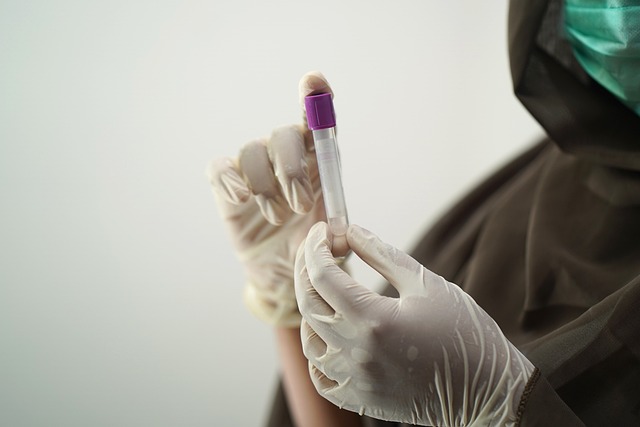The Standard Liver Blood Test UK is an essential tool for monitoring liver health from home, offering a non-invasive way to measure key substances like ALT, AST, GGT, and total bilirubin. This test enables individuals to detect potential liver abnormalities, including conditions such as hepatitis or cirrhosis by identifying inflammation or damage. Home testing kits are now widely accessible and include comprehensive instructions and materials for self-sample collection. These kits ensure samples reach accredited laboratories for analysis, with healthcare professionals interpreting the results to provide insights into liver health. Additionally, users can supplement their monitoring with non-invasive ultrasound devices for ongoing assessment. It's crucial to maintain regular consultations with healthcare providers for accurate result interpretation and professional advice on further tests or treatments. Keeping a record of diet, medication, and symptoms can also help understand the impact of lifestyle choices on liver health. Regular use of the Standard Liver Blood Test UK is key for early detection and effective management of liver conditions, making it a vital part of liver health maintenance in the UK.
Managing personal health has become increasingly convenient with advancements in home testing, particularly for conditions like liver function. This article delves into the process of conducting a Standard Liver Blood Test UK, equipping individuals with the knowledge to perform essential components of a liver function assessment at home. Furthermore, it provides insights into interpreting your liver blood test results, ensuring you understand what the numbers mean for your health. With these tools, you can proactively monitor your well-being and take charge of your health from the comfort of your own environment.
- Conducting a Standard Liver Blood Test UK: A Comprehensive Guide for Home Health Monitoring
- Essential Components of a Liver Function Assessment at Home
- Interpreting Your Liver Blood Test Results: What the Numbers Reveal About Your Health
Conducting a Standard Liver Blood Test UK: A Comprehensive Guide for Home Health Monitoring

Regular health monitoring is a pivotal aspect of maintaining overall well-being, and for many, this includes tracking liver health through a Standard Liver Blood Test. This test is a fundamental diagnostic tool in the UK, designed to assess liver function by measuring certain substances in the blood, such as alanine aminotransferase (ALT), aspartate aminotransferase (AST), gamma-glutamyl transferase (GGT), and total bilirubin. Understanding how to conduct this test at home is not only empowering for individuals but also a convenient way to monitor potential liver issues.
For those interested in conducting a Standard Liver Blood Test from the comfort of their home, it is advisable to consult with healthcare providers who can guide you through the process. In the UK, various services offer home testing kits that include instructions and materials necessary for taking a blood sample. These kits often come with detailed guidelines and may even include a prepaid return envelope to send your sample to an accredited laboratory for analysis. Upon receiving the results, a healthcare professional will interpret them, providing you with insights into your liver’s health status. It is crucial to follow the test kit instructions precisely and adhere to any post-testing care recommendations to ensure accurate results. With advancements in telemedicine and home health monitoring technology, accessing a Standard Liver Blood Test UK has become more accessible than ever, allowing individuals to take proactive steps towards their liver health.
Essential Components of a Liver Function Assessment at Home

For individuals seeking to monitor their liver health at home, a comprehensive assessment can be initiated with the Standard Liver Blood Test UK, which is readily accessible through healthcare providers or via home testing kits. This test typically includes measurements of liver enzymes such as alanine aminotransferase (ALT) and aspartate aminotransferase (AST), which can indicate inflammation or damage to the liver. Additionally, gamma-glutamyl transferase (GGT), alkaline phosphatase (ALP), and total bilirubin levels are assessed to evaluate liver function and detect potential issues like hepatitis or cirrhosis. These components provide a clear picture of liver status by measuring the extent to which these enzymes and substances are present in the bloodstream, allowing for early detection and intervention if necessary.
Furthermore, individuals can complement the Standard Liver Blood Test UK with additional assessments at home, such as monitoring liver function through non-invasive methods like ultrasound machines designed for home use. These devices can help track changes over time, offering a more dynamic understanding of liver health. It is also advisable to maintain regular follow-ups with healthcare professionals, who can guide you on interpreting the results and recommend further investigations if needed. Keeping a log of dietary habits, medications, and any symptoms experienced can further assist in correlating lifestyle factors with liver function, ensuring a holistic approach to maintaining liver health at home.
Interpreting Your Liver Blood Test Results: What the Numbers Reveal About Your Health

Understanding your liver blood test results is crucial for maintaining optimal health. In the UK, the Standard Liver Blood Test UK is a common screening tool that measures levels of substances in the blood that are indicative of liver function. One of the primary markers assessed is the GGT (Gamma-Glutamyl Transferase) level, which can reflect liver damage or disease. Elevated GGT may suggest excessive alcohol consumption, liver infection, or bile duct obstruction, among other conditions. Additionally, ALT (Alanine Transaminase) and AST (Aspartate Transaminase) levels are examined to detect hepatocellular injury or inflammation within the liver. The albumin and globulin components of the total protein measure help gauge liver synthesis capacity and can indicate liver dysfunction if these proteins are abnormal. Furthermore, bilirubin levels are a key indicator of liver function, with elevated levels potentially signaling hepatic obstruction or hemolysis. It’s important for individuals to discuss their test results with a healthcare professional, as they can provide context and guidance based on an individual’s unique health profile and any additional symptoms they may be experiencing. Regular monitoring through the Standard Liver Blood Test UK is an essential part of liver disease prevention and management in the UK population.
In conclusion, home health monitoring has become increasingly significant, with the Standard Liver Blood Test UK being a pivotal component for individuals to proactively manage their liver health. By understanding the essential elements of a liver function assessment and interpreting the results accurately, one can detect potential issues early on, leading to timely medical intervention when necessary. Regular self-monitoring empowers individuals to take charge of their well-being, ensuring they maintain optimal liver health alongside overall health. It’s a proactive step that can make a substantial difference in one’s health journey, all within the comfort and privacy of one’s own home.
